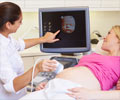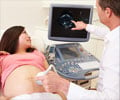Apollo Hospitals emphasize the crucial role of ultrasound in early fatty liver disease detection, urging routine use to improve patient outcomes.

Importance of Ultrasound in Early Detection
Dr. N. Murugan, Senior Consultant Hepatologist & Liver Transplant Physician at Apollo Hospitals, Chennai, raised concerns about the delayed diagnosis of fatty liver disease (FLD), particularly metabolic dysfunction-associated c (MASLD). He noted, "The increasing prevalence of MASLD in India, driven by higher rates of obesity, diabetes, and metabolic syndrome, requires early and precise detection through imaging techniques like ultrasound."Dr. Akash Roy, Senior Hepatologist at Apollo Hospitals, Kolkata, underscored the need for routine ultrasound use in diagnosing fatty liver disease. He stated, "Early detection through ultrasound can lead to timely interventions, lifestyle changes, and treatment plans that significantly improve patient outcomes."
Weight reduction is a well-established method to reverse fatty liver in its early stages, with even a 5 to 10% decrease in body weight significantly reducing liver fat and inflammation.
Dr. Sathya Sriram, CEO of Preventive Health at Apollo Hospitals, emphasized the hospital’s dedication to comprehensive and personalized health checks through Apollo ProHealth. "We advocate for incorporating ultrasound as a crucial part of health checks due to its substantial clinical benefits for true preventive care. We hope more healthcare providers will adopt imaging to enhance patient care, especially for the early detection of fatty liver disease," she added.
Fatty liver disease is closely linked to obesity and diabetes, which are indicative of metabolic dysfunction. Excessive carbohydrate consumption can lead to chronic high insulin levels, resulting in insulin resistance and the conversion of excess glucose into fatty acids stored in the liver. FLD can be classified into alcoholic fatty liver disease (AFLD) and non-alcoholic fatty liver disease (NAFLD/MASLD), with the latter potentially progressing to more severe conditions such as non-alcoholic steatohepatitis (NASH/MASH), fibrosis, cirrhosis, or liver cancer.
Advertisement















